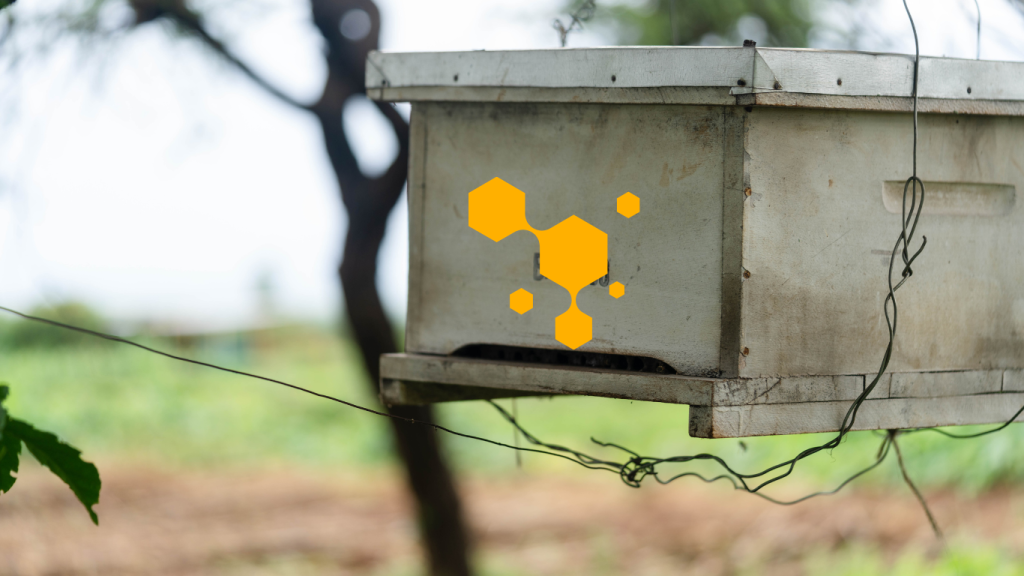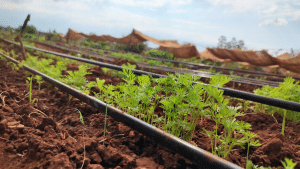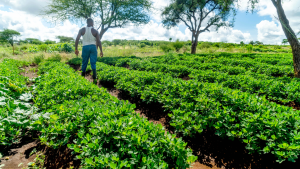
Pollinators are fundamental to the success of organic farming, not only aiding in the production of a wide array of crops but also promoting biodiversity and ecosystem health. These creatures, including bees, butterflies, birds, and bats, are responsible for transferring pollen from one flower to another, thus facilitating the reproductive process of plants. This natural service is crucial for the development of fruits and seeds that constitute a large portion of the food we consume.
Pollinators’ Impact on Crop Yield and Quality
In organic farming systems, the absence of synthetic pesticides and fertilisers makes the role of natural pollinators even more significant. Pollinators like bees have been shown to increase crop yields substantially, sometimes by over 70%. For crops such as strawberries, apples, and almonds, which are heavily reliant on pollinators, the presence of a diverse pollinator population can directly influence both yield and the overall quality of the harvest.
The Special Role of Bees
Among all pollinators, bees hold a pivotal role due to their efficiency and the volume of pollination they can provide. On Ambokili Farm, bees are particularly cherished as part of the ecosystem. With 7 of its beehives now occupied, the farm benefits immensely from their pollination activities, which support an array of organically grown crops. This active bee population not only enhances fruit and seed production but also contributes to the stability and health of the plant life within the farm.
Enhancing Genetic Diversity
Through cross-pollination, bees and other pollinators promote genetic diversity within plant populations, crucial for plant resilience. This genetic diversity is vital for enhancing the resilience of plants, helping them to withstand pests, diseases, and environmental pressures. The genetic diversity introduced by pollinators leads to healthier and more robust plant populations, which is a cornerstone of sustainable organic farming practices.
Sustaining Ecosystems and Biodiversity
Beyond agriculture, pollinators play a pivotal role in maintaining broader ecosystem health. They help sustain various plant species, many of which are crucial for different wildlife species that depend on them for food and shelter. By fostering a wide range of plant life, pollinators help preserve ecological balance and biodiversity, creating more resilient natural ecosystems which is beneficial for organic farms.
Challenges Facing Pollinators
Despite their importance, pollinators face numerous threats that jeopardise their populations and, by extension, the ecosystems and agricultural systems they support. The widespread use of agricultural chemicals in conventional farming, habitat loss due to land use changes, and the impacts of climate change are among the significant challenges that reduce pollinator populations.
Strategies to Support Pollinators in Organic Farming
– Creating Pollinator-Friendly Habitats: Designating areas on farms to support pollinators by planting native wildflowers and maintaining hedgerows can provide essential food and nesting sites.
– Avoiding Chemical Use: Organic farming inherently involves the no use of synthetic chemicals, which helps protect pollinator health.
– Diverse Planting: Cultivating a variety of crops and employing crop rotation and intercropping can attract and sustain a more diverse pollinator population.
– Supporting Wild Pollinators: Preserving natural landscapes and implementing measures like installing bee hives can enhance wild pollinator populations, which in turn benefits crop production.
The role of pollinators in organic farming extends beyond just increasing crop yields; they are indispensable for maintaining biodiversity and the overall health of the ecosystem. As organic farming continues to grow, understanding and supporting these natural allies will be crucial for sustainable agricultural practices and long-term food security.
By fostering environments that support pollinators, organic farms not only enhance their productivity but also contribute to a healthier planet. This synergy between organic farming and pollinator health is a model for sustainable agriculture that benefits everyone, from the farmer to the consumer.
FAQs About Pollinators in Organic Farming
- How does Ambokili Farm support its bee populations?
Ambokili Farm supports its bee populations by maintaining seven active beehives, which helps enhance pollination across the farm. Additionally, the farm implements practices such as creating pollinator-friendly habitats with native wildflowers and hedgerows, and avoiding chemical use, which are crucial for supporting healthy bee populations and other pollinators.
- Why are pollinators so important to organic farming?
Pollinators are crucial for the success of organic farming as they perform the vital task of pollinating crops, which is essential for the production of fruits and seeds. This natural pollination boosts crop yields and enhances genetic diversity, leading to healthier and more resilient plant populations.
- What types of pollinators are most common on organic farms?
The most common pollinators on organic farms include bees, butterflies, birds, and bats. Among these, bees are particularly significant due to their efficiency and the large volume of pollination they provide, which is critical for the pollination of many types of crops.
- What challenges do pollinators face today?
Pollinators face several significant challenges, including habitat loss due to agricultural expansion and urban development, the widespread use of pesticides and other chemicals in conventional farming, and climate change. These factors contribute to the decline in pollinator populations, which poses a threat to biodiversity and the success of organic farming.
- How can individuals help support pollinator populations?
Individuals can support pollinator populations by planting pollinator-friendly gardens, avoiding pesticide use, and supporting local and organic farms that implement pollinator-friendly practices. Additionally, participating in or donating to conservation efforts aimed at preserving natural habitats can also help protect and enhance pollinator populations.






